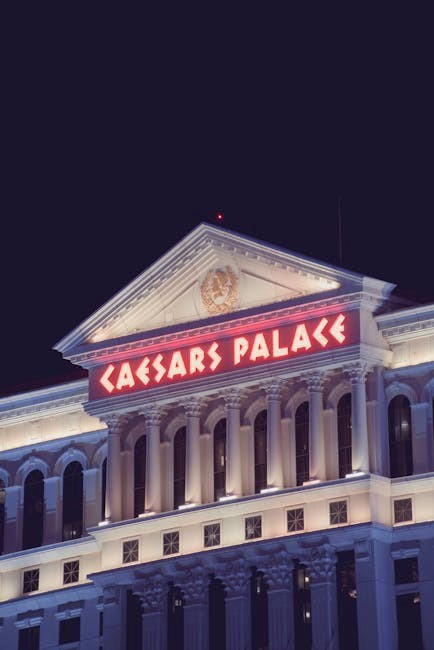Fear and Loathing in Las Vegas, written by Hunter S․ Thompson, is a seminal work blending gonzo journalism with fiction, exploring themes of excess and rebellion in 1970s America․
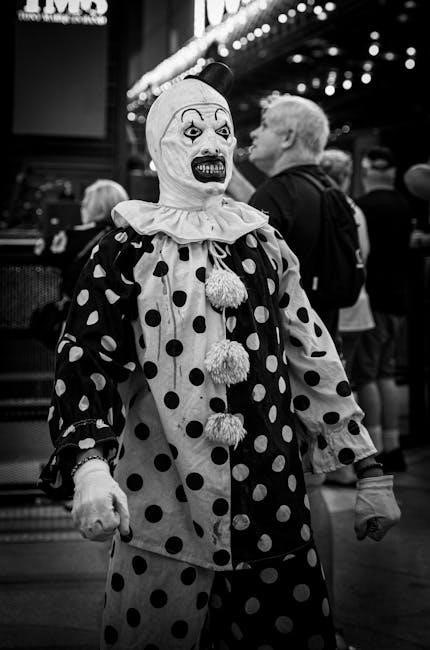
Plot Summary
Fear and Loathing in Las Vegas follows journalist Raoul Duke (Hunter S․ Thompson) and his attorney, Dr․ Gonzo, on a drug-fueled journey to Las Vegas․ The story begins with a journalistic assignment to cover the Mint 400 motorcycle race but quickly spirals into chaos․ Their trip is fueled by a cocktail of psychedelic drugs, leading to surreal and hallucinatory experiences․ As they navigate the neon-lit streets of Las Vegas, Duke and Gonzo confront the dark underbelly of the American Dream, questioning societal norms and the counterculture movement․ The narrative is a blend of reality and fiction, capturing the essence of gonzo journalism․ The film adaptation, directed by Terry Gilliam, stars Johnny Depp as Duke and Benicio del Toro as Gonzo, bringing the chaotic and unpredictable story to life․
Themes and Symbolism
Fear and Loathing in Las Vegas explores themes of the American Dream, rebellion, and societal decay, symbolizing the clash between idealism and reality through Las Vegas’s excess and moral ambiguity․
3․1 The American Dream
The novel critiques the illusion of the American Dream, presenting it as unattainable and corrupt․ Raoul Duke’s journey to Las Vegas symbolizes a search for freedom and prosperity, yet exposes the decay of ideals and moral bankruptcy in 1970s America․ Through Duke’s drug-fueled experiences, Thompson portrays the Dream as a facade, highlighting the tension between individual aspiration and societal failure․ The excesses of Las Vegas serve as a backdrop, revealing the emptiness and disillusionment that accompany the pursuit of material success․ This critique resonates with the countercultural movement, challenging the notion of a perfect America and instead presenting a chaotic reality․
3․2 Drug Culture
Drug culture plays a central role in Fear and Loathing in Las Vegas, as it fuels the chaotic journey of Raoul Duke and Dr․ Gonzo․ The novel vividly portrays the effects of various substances, from marijuana to LSD, creating a surreal narrative that blurs reality and fantasy․ Thompson uses drugs as both a narrative device and a critique of 1970s American society, where substance use became a form of rebellion and escape․ The characters’ excessive consumption reflects the era’s countercultural movement, exploring themes of liberation and self-destruction․ While the novel does not glorify drugs, it captures their influence on the characters’ psyches and the broader societal disillusionment of the time․ This portrayal has made the book a defining text of the drug culture era, offering a raw and unfiltered look at its highs and lows․
Author Background: Hunter S․ Thompson
Hunter S․ Thompson, born on July 18, 1937, in Louisville, Kentucky, was a renowned American journalist and author․ Known for his unique writing style, Thompson developed a genre called Gonzo journalism, where the writer becomes an active participant in the story․ Before gaining fame with Fear and Loathing in Las Vegas, Thompson served in the U․S․ Air Force and worked as a reporter for various newspapers․ His experiences shaped his critique of American culture and politics․ Thompson’s other notable works include Hell’s Angels and Fear and Loathing on the Campaign Trail ‘72․ His writing often explored themes of rebellion, excess, and societal dysfunction․ Thompson’s larger-than-life persona and unconventional approach to journalism made him a cult figure․ He passed away in 2005, leaving behind a legacy of bold, unapologetic storytelling that continues to influence writers and artists today․
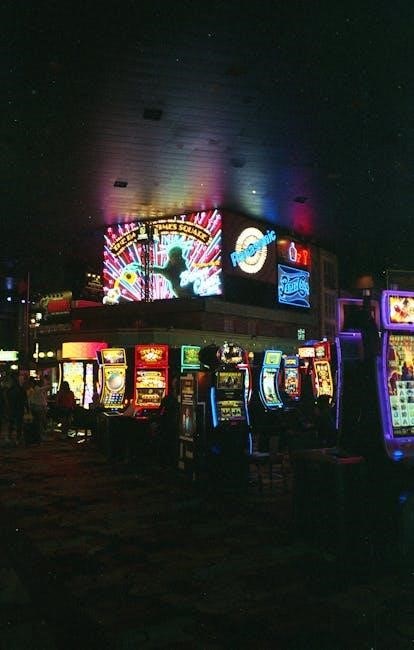
Writing Style and Gonzo Journalism
Hunter S․ Thompson’s Fear and Loathing in Las Vegas is a landmark of Gonzo journalism, a style he pioneered․ This approach dissolves the line between reporter and subject, immersing the writer in the story․ Thompson’s prose is raw, irreverent, and infused with dark humor, capturing the chaos of his experiences․ His writing blends fact and fiction, creating a surreal narrative that reflects the drug-fueled haze of his journey․ The book’s vivid imagery and stream-of-consciousness style mirror the disorientation of its characters․ Thompson’s use of exaggeration and satire critiques American culture, politics, and the elusive American Dream․ Gonzo journalism’s subjective, unfiltered nature made Thompson’s work controversial yet groundbreaking, influencing generations of writers and journalists․ His unique voice and fearless storytelling continue to resonate, making Fear and Loathing in Las Vegas a timeless piece of countercultural literature․

Film Adaptation
The 1998 film adaptation, directed by Terry Gilliam, stars Johnny Depp as Raoul Duke and Benicio Del Toro as Dr․ Gonzo, capturing the book’s surreal essence and chaotic energy․
6․1 Production Background
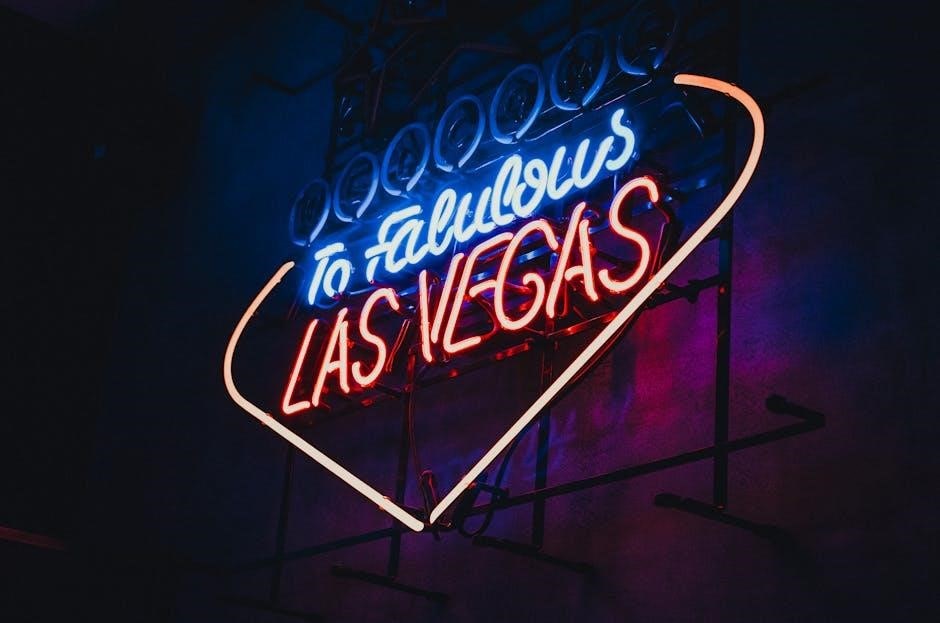
The film adaptation of Fear and Loathing in Las Vegas was released in 1998, directed by Terry Gilliam, known for his surreal and visually striking style․ The screenplay was adapted by Terry Gilliam, Tony Grisoni, Alex Cox, and Tod Davies․ Johnny Depp starred as Raoul Duke, while Benicio del Toro played Dr․ Gonzo․ The film stayed relatively faithful to the book, capturing its chaotic energy and psychedelic themes․ Production began in 1997, with filming primarily taking place in Las Vegas and surrounding areas․ The shoot lasted approximately 56 days, with a budget of $18․5 million․ Gilliam faced challenges in translating Thompson’s subjective narrative into a coherent visual experience․ Despite this, the film gained a cult following, praised for its bold visuals and performances․
The film’s success solidified its place as a cult classic, mirroring the book’s enduring legacy․
6;2 Reception and Impact
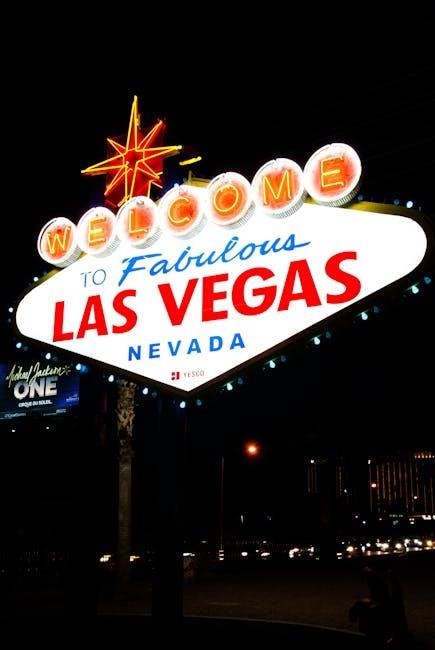
The film adaptation of Fear and Loathing in Las Vegas received mixed reviews upon its release but later gained a cult following․ Critics praised Johnny Depp’s performance as Raoul Duke, capturing the character’s eccentricity and depth․ The film’s visuals and Terry Gilliam’s direction were also commended for their bold and surreal representation of the book’s themes․ However, some critics found the narrative disjointed and challenging to follow, reflecting the chaotic nature of the source material․
Despite mixed initial reception, the film has become a staple in pop culture, influencing numerous works and solidifying its place as a cult classic․ Its exploration of excess and rebellion continues to resonate with audiences, making it a timeless piece of cinematic art․
The film’s impact is evident in its enduring popularity, with fans frequently quoting lines and referencing its iconic scenes․ Its influence can be seen in various forms of media, cementing its legacy as a groundbreaking adaptation․
PDF Availability and Download Options
Cultural Impact and Legacy
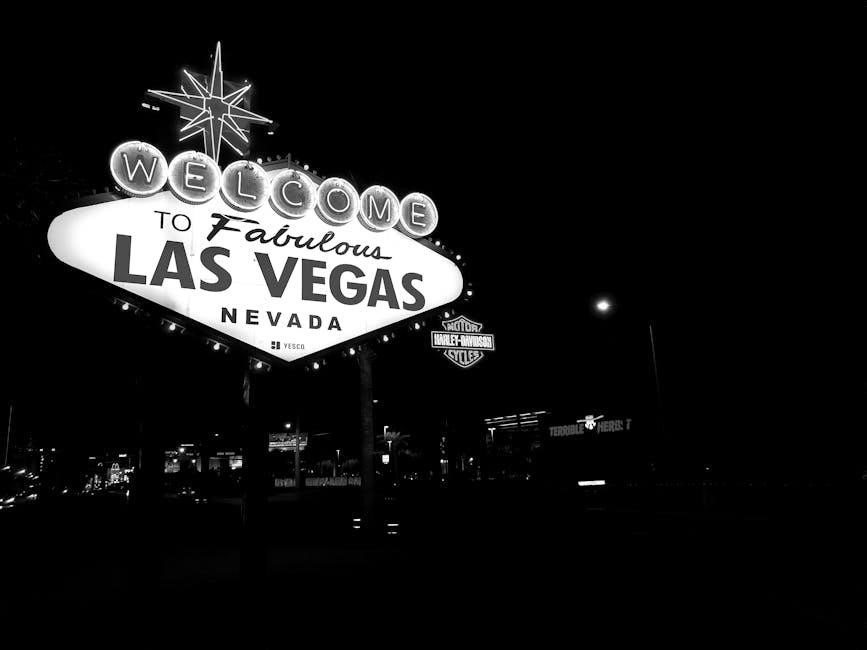
Fear and Loathing in Las Vegas has left an indelible mark on popular culture, transcending its literary roots to influence music, film, and societal attitudes; Its exploration of the American Dream and drug culture resonated deeply, making it a cult classic․ The book’s unique narrative style and Gonzo journalism approach have inspired countless writers and filmmakers․ Its 1998 film adaptation further cemented its legacy, introducing the story to a new generation․ The novel’s critique of excess and rebellion continues to spark discussions, solidifying its place as a timeless commentary on American society․ Its influence extends to music, with bands like Fear, and Loathing in Las Vegas drawing inspiration from its themes․ Today, it remains a powerful symbol of rebellion and introspection, ensuring its relevance for years to come․
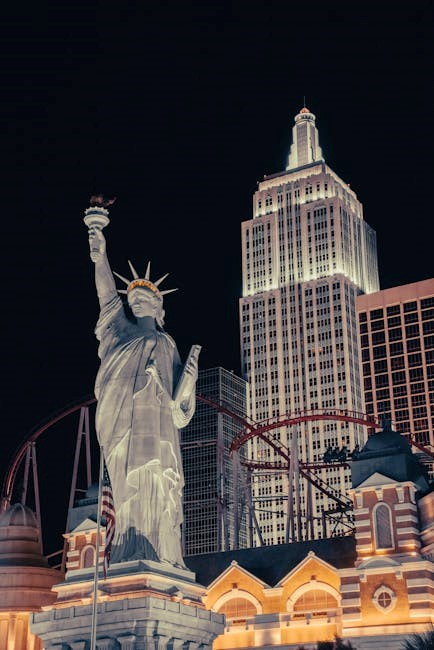
Music Inspired by the Book
The themes and raw energy of Fear and Loathing in Las Vegas have inspired a wide range of musical artists․ One notable example is the band Fear, and Loathing in Las Vegas, whose name directly references the book․ This Japanese electronicore group blends intense vocals with catchy melodies, mirroring the book’s chaotic yet reflective tone․ Their music, particularly tracks like “Let Me Hear,” captures the rebellious and unpredictable spirit of the novel․ Other artists have also drawn inspiration from the book’s exploration of excess, rebellion, and introspection, creating songs that echo its themes․ The book’s influence extends beyond literature, shaping sounds that resonate with fans of its unique storytelling and Gonzo journalism style․ This musical connection underscores the enduring legacy of Fear and Loathing in Las Vegas in popular culture․
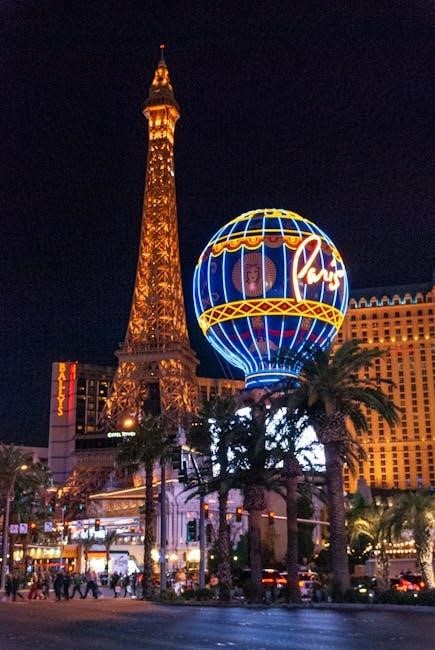
Legacy and Influence
Fear and Loathing in Las Vegas has left an indelible mark on literature, film, and popular culture․ Its unique blend of Gonzo journalism and surreal storytelling has influenced countless writers, filmmakers, and artists․ The book’s exploration of the American Dream, counterculture, and excess continues to resonate, making it a timeless classic․ Its adaptation into a cult film in 1998 further cemented its legacy, introducing the story to new generations․ The novel’s themes of rebellion and self-discovery have inspired musicians and creators worldwide․ Additionally, the ease of accessing the book in PDF format has allowed it to reach a global audience, ensuring its ideas and influence remain relevant․ Today, Fear and Loathing in Las Vegas is celebrated as a groundbreaking work that challenges societal norms and pushes creative boundaries․
Fear and Loathing in Las Vegas remains a groundbreaking and thought-provoking work that continues to captivate readers and audiences․ Its exploration of the American Dream, drug culture, and societal excess offers a raw, unfiltered glimpse into the chaos of the 1970s․ The book’s influence extends beyond literature, inspiring films, music, and art․ The 1998 film adaptation, starring Johnny Depp, further cemented its cult status, introducing the story to new generations․ Today, the availability of the book in PDF format ensures its accessibility, allowing readers worldwide to experience Hunter S․ Thompson’s unique Gonzo journalism․ As a cultural touchstone, Fear and Loathing in Las Vegas challenges norms and sparks reflections on freedom, rebellion, and the human condition․ Its legacy endures, solidifying its place as a timeless classic of American literature․
